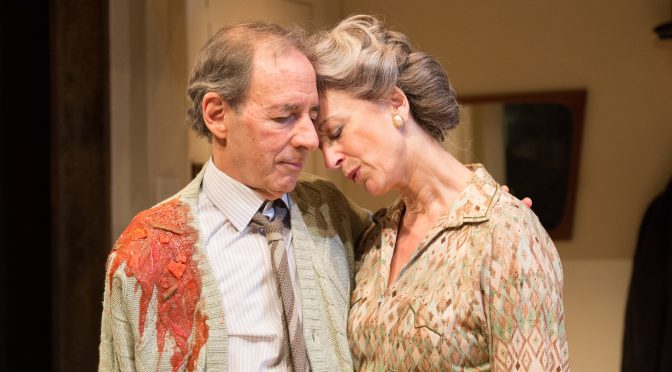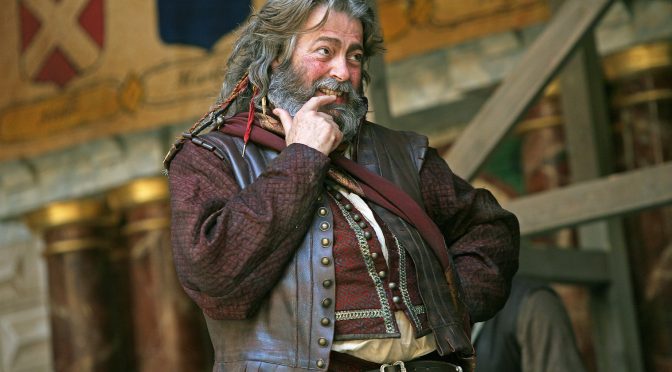Still in its inaugural season, the Park Theatre in Finsbury Park saw its first première of a new play open last night. Daytona by Oliver Cotton is a clever three-hander, well written and superbly produced. The story of three elderly Jewish emigrants to America, set in 1986, it sees a married couple’s well-ordered life disrupted by the unexpected return of a brother who had disappeared 30 years earlier. Arriving with the announcement that he has killed a war criminal while on holiday in Florida, he reopens wounds, both personal and political, posing moral dilemmas rich in dramatic potential.
Cotton is well known as a performer, so perhaps it should come as no surprise that he has written such wonderful roles. Under the skilful direction of David Grindley (fast becoming one of my favourites, given his excellent The American Plan currently at the St James Theatre), the performances here are truly accomplished. Surely, naturalism like this is only achieved with experience – the characters talk rather than recite, despite lengthy speeches that take us on a journey into the past. John Bowe plays charismatic, mellifluous-voiced Billy, whose return creates such shockwaves. His brother Joe is a retired accountant whose inner strength is revealed in a detailed performance from Harry Shearer. Completing the triangle is Elli, the marvellous Maureen Lipman, cleverly playing with stereotypes of the Jewish wife and injecting a steely tone that’s perfect for the play’s many surprises.
Elli and Joe make a great couple, not perfect – you can insert a shoulder shrug here – but, despite the trauma in their lives, their story is one of carrying on. Persistence, elevated to the point of a memorial to all their pain, makes Daytona an affirming play. And yet most of its power comes from the acting. For all its adroitness, Cotton’s text seems brief, leaving too many loose ends to satisfy. But the ambition to present an elderly trio as our sole concern is executed superbly. With theatre often obsessed with youth, it’s a welcome and original move.
Until 18 August 2013
Photo by Manuel Harlan
Written 18 July 2013 for The London Magazine


